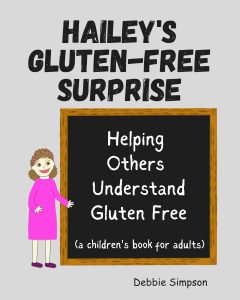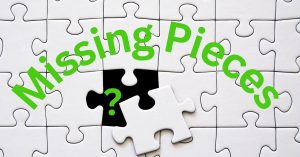This page may contain Amazon affiliate links.
The Journey To An Answer: It Started with a POP
Osteoporosis wasn’t even on my radar at age 38. But this soon became a billboard in my brain and constant thoughts.
It was the fall of 1998. I lifted something heavy and felt a slight pop in my back. It didn’t hurt at first, but by late afternoon–pain. Lots of PAIN. The doctor ordered x-rays. And after viewing the x-rays he ordered a bone density scan. I could tell by the look on the technician’s face during the scan that it wasn’t good.
He couldn’t tell me anything, however. I had to wait for my appointment with the doctor.
But I'm Too Young! Could It Be An Absorption Issue?
“You have osteoporosis,” I was told. “You have severe osteoporosis.”
Specialists, tests, appointments, questions. Prior to this, I had always felt that I wasn’t absorbing nutrients properly. Asking any doctor this question, however, only resulted in blank stares in return. It was as though this was some foreign concept.
My thyroid med continuously increased. (hmmm….once again, “Could it be because I’m not absorbing?” – continued blank stares.)
Past Symptoms Are Obvious Now
I didn’t realize it then, but so many of my odd and unexplained issues were connected to a lack of absorption:
- I bruised easily (very easily).
- I had odd cravings: ice chewing and the smell of gasoline
- Leg cramps
- Fatigue
- Very low cholesterol
- I was thin—very thin
I didn’t feel well. My marriage was rocky and continued to go down hill. My health problems and questions continued to go unanswered. “You’re SO thin,” was something I never got used to hearing. Many think the thin person who can eat and eat and eat lucky. Having been there, I can assure you—no! I absolutely did not enjoy it.
I remember feeling OK when I woke up, eating what I thought to be a healthy breakfast of Raisin Bran before the day seemed to go directly downhill. Never did I connect how I felt to the way I ate.
One day, some time before noon, I was just so very tired of that achiness and fatigue. I was in my car, on my way to or from somewhere, and I just started crying. The next thing I knew, I was in my doctor’s office, without an appointment, requesting to speak with her. I remember standing across from where she sat at her desk, listening to her insistence that nothing was wrong. I felt very foolish.
It was good to finally, eventually, find out I wasn’t crazy, but this still took some time.
First, I needed to live through several more months of increasing fatigue and decreasing bone density.
Bone Specialist
Specialists are necessary. Who knows everything?
We don’t call a plumber to repair an electrical issue or a landscaper to repair our furnace. We don’t go to a chiropractor for cataract surgery.
The problem was in my bones, so, of course, I was sent to a bone specialist.
And for two years I continued visiting her every six months for scans and prescriptions.
“We will find an answer,” she assured me.
Who Do I Really Need, A Roofer Or Construction Worker?
Imagine this. A corner of your ceiling has a spot that is wet and damaged. You call a construction worker (who specializes in dry walling) to repair that spot.
So he comes in and fixes your damaged ceiling. Two weeks later, it’s damaged again.
How many times will he fix it before he tells you the problem isn’t with the drywall. The problem is that the drywall is getting wet. And the drywall is getting wet because you have a leak somewhere.
Chances are that he/she would tell you this from the very first call. If you called to have your ceiling repaired (a ceiling that had water damage) he would most likely direct you to a specialist to repair the source of the water damage first.
And this is often the case with human anatomy. While the visual damage results in a certain area of the body, it is often due to a seemingly unrelated issue. I could be given drugs after drugs to increase bone density (which weren’t working anyway), but without discovering why I kept losing, they weren’t effective.
And Then Finally . . .
It was September of the year 2000. My semiannual appointment with my bone specialist found that I had lost another 4% bone density (in just six months time!). I lost a total of 7% that year alone. What was wrong?!!!
I was terrified.
In walked a nurse with a paper in her hand. She told me they were just given a grant to do a Celiac / Osteoporosis study. The paper listed symptoms of celiac (some of which I had, some I didn’t). “Do you want to take part in the study?,” she asked.
My answer: “YES! YES! Most definitely, YES!”
My bone specialist told me she didn’t think I had celiac, but to go ahead and get tested. And wow, was I glad I did!
Three days later I received a call that my blood test was positive. VERY positive. The next step was an intestinal biopsy to confirm celiac—which it did.
An Answer -- Joyful News
I didn’t have to wait for the pathology report. The damage was clear when my gastroenterologist did the endoscopy. I received the news when I awoke from anesthesia, and I couldn’t be happier. Two years of worrying, “What’s wrong with me,” that followed a lifetime of health issues. Yes, having an answer was joyous indeed!
I was actually the first osteoporosis patient in the study to test positive for celiac.
Life became a new adventure, with promises of good things to come. I was on cloud nine (with apprehensions). An answer was phenomenal. I felt I could do whatever it took to get my health back (if I ever had it to begin with, that is).
Two weeks into my gluten free journey, however, the impact of this diet change created an unexpected emotion. I found myself in a phase of mourning. I started to realize how difficult eating would actually be, and I started to realize all the foods I had to do without–or thought I’d have to do without. Eating gluten free back then wasn’t what it is now.
I eventually learned that the struggle wasn’t so much in eating gluten free as it was in change. It became more about letting go of the old and accepting the new.
A Study Worth Sharing
Here I am, featured in an article printed in a Washington University, St. Louis publication, Outlook: A Most Brittle Hypothesis (I was Debbie Adams at the time).
When I was diagnosed with celiac, I stopped taking the osteoporosis meds (that weren’t helping anyway). I regained 15% bone density in the first year alone—-just by being gluten free!
I’m now healthier and stronger now, as I approach 60, than I was when I was diagnosed in 2000, at age 40.
Of course, osteoporosis wasn’t my only symptom of celiac, it just happened to be what led to answers — finally. I soon discovered that most of my first 40 years had been filled with symptoms.






